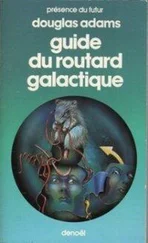Douglas Adams - The Salmon of Doubt
Здесь есть возможность читать онлайн «Douglas Adams - The Salmon of Doubt» весь текст электронной книги совершенно бесплатно (целиком полную версию без сокращений). В некоторых случаях можно слушать аудио, скачать через торрент в формате fb2 и присутствует краткое содержание. Жанр: Фантастика и фэнтези, на английском языке. Описание произведения, (предисловие) а так же отзывы посетителей доступны на портале библиотеки ЛибКат.
- Название:The Salmon of Doubt
- Автор:
- Жанр:
- Год:неизвестен
- ISBN:нет данных
- Рейтинг книги:4 / 5. Голосов: 1
-
Избранное:Добавить в избранное
- Отзывы:
-
Ваша оценка:
- 80
- 1
- 2
- 3
- 4
- 5
The Salmon of Doubt: краткое содержание, описание и аннотация
Предлагаем к чтению аннотацию, описание, краткое содержание или предисловие (зависит от того, что написал сам автор книги «The Salmon of Doubt»). Если вы не нашли необходимую информацию о книге — напишите в комментариях, мы постараемся отыскать её.
The Salmon of Doubt — читать онлайн бесплатно полную книгу (весь текст) целиком
Ниже представлен текст книги, разбитый по страницам. Система сохранения места последней прочитанной страницы, позволяет с удобством читать онлайн бесплатно книгу «The Salmon of Doubt», без необходимости каждый раз заново искать на чём Вы остановились. Поставьте закладку, и сможете в любой момент перейти на страницу, на которой закончили чтение.
Интервал:
Закладка:
God used to be the best explanation we’d got, and we’ve now got vastly better ones. God is no longer an explanation of anything, but has instead become something that would itself need an insurmountable amount of explaining. So I don’t think that being convinced that there is no god is as irrational or arrogant a point of view as belief that there is. I don’t think the matter calls for even-handedness at all.
DNA: Well, it’s a rather corny story. As a teenager I was a committed Christian. It was in my background. I used to work for the school chapel, in fact. Then one day when I was about eighteen I was walking down the street when I heard a street evangelist and, dutifully, stopped to listen. As I listened it began to be borne in on me that he was talking complete nonsense, and that I had better have a bit of a think about it.
I’ve put that a bit glibly. When I say I realized he was talking nonsense, what I mean is this. In the years I’d spent learning history, physics, Latin, math, I’d learnt (the hard way) something about standards of argument, standards of proof, standards of logic, etc. In fact we had just been learning to spot the different types of logical fallacy, and it suddenly became apparent to me that these standards simply didn’t seem to apply in religious matters. In religious education we were asked to listen respectfully to arguments that, if they had been put forward in support of a view of, say, why the Corn Laws came to be abolished when they were, would have been laughed at as silly and childish and—in terms of logic and proof—just plain wrong. Why was this? Well, in history, even though the understanding of events, of cause and effect, is a matter of interpretation, and even though interpretation is in many ways a matter of opinion, nevertheless those opinions and interpretations are honed to within an inch of their lives in the withering crossfire of argument and counterargument, and those that are still standing are then subject to a whole new round of challenges of fact and logic from the next generation of historians—and so on. All opinions are not equal. Some are a very great deal more robust, sophisticated and well-supported in logic and argument than others. So I was already familiar with and (I’m afraid) accepting the view that you couldn’t apply the logic of physics to religion that they were dealing with different types of “truth.” (I now think this is baloney, but to continue ...) What astonished me, however, was the realization that the arguments in favor of religious ideas were so feeble and silly next to the robust arguments of something as interpretive and opinionated as history. In fact they were embarrassingly childish. They were never subject to the kind of outright challenge which was the normal stock in trade of any other area of intellectual endeavor whatsoever. Why not? Because they wouldn’t stand up to it. So I became an Agnostic. And I thought and thought and thought. But I just did not have enough to go on, so I didn’t really come to any resolution. I was extremely doubtful about the idea of god, but I just didn’t know enough about anything to have a good working model of any other explanation for, well, life, the universe, and everything to put in its place. But I kept at it, and I kept reading and I kept thinking. Sometime around my early thirties I stumbled upon evolutionary biology, particularly in the form of Richard Dawkins’s books The Selfish Gene and then The Blind Watchmaker, and suddenly (on, I think the second reading of The Selfish Gene) it all fell into place. It was a concept of such stunning simplicity, but it gave rise, naturally, to all of the infinite and baffling complexity of life. The awe it inspired in me made the awe that people talk about in respect of religious experience seem, frankly, silly beside it. I’d take the awe of understanding over the awe of ignorance any day.
DNA: This is a slightly puzzling question to me, and I think there is a cultural difference involved. In England there is no big deal about being an Atheist. There’s just a slight twinge of discomfort about people strongly expressing a particular point of view when maybe a detached wishy-washiness might be felt to be more appropriate—hence a preference for Agnosticism over Atheism. And making the move from Agnosticism to Atheism takes, I think, much more commitment to intellectual effort than most people are ready to put in. But there’s no big deal about it. A number of the people I know and meet are scientists, and in those circles Atheism is the norm. I would guess that most people I know otherwise are Agnostics, and quite a few are Atheists. If I was to try and look amongst my friends, family, and colleagues for people who believed there was a god I’d probably be looking amongst the older and (to be perfectly frank) less well-educated ones. There are one or two exceptions. (I nearly put, by habit,
“honorable exceptions,” but I don’t really think that.)
AMERICAN ATHEISTS: How often have fans, friends, or co-workers tried to “save” you from Atheism?
DNA: Absolutely never. We just don’t have that kind of fundamentalism in England. Well, maybe that’s not absolutely true. But (and I’m going to be horribly arrogant here) I guess I just tend not to come across such people, just as I tend not to come across people who watch daytime soaps or read the National Enquirer. And how do you usually respond? I wouldn’t bother. AMERICAN ATHEISTS: Have you faced any obstacles in your professional life because of your Atheism (bigotry against Atheists), and how did you handle it? How often does this happen?
DNA: Not even remotely. It’s an inconceivable idea.
AMERICAN ATHEISTS: What message would you like to send to your Atheist fans?
DNA: Hello! How are you?
From The American Atheist 37, No. 1
(interview conducted by David Silverman)
***
What are the benefits of speaking to your fans via e-mail?
It’s quicker, easier, and involves less licking.
Predicting the Future Trying to predict the future is a mug’s game. But increasingly it’s a game we all have to play because the world is changing so fast and we need to have some sort of idea of what the future’s actually going to be like because we are going to have to live there, probably next week.
Oddly, the industry that is the primary engine of this incredible pace of change—the computer industry—turns out to be rather bad at predicting the future itself. There are two thing in particular that it failed to foresee: one was the coming of the Internet, which, in an astonishingly short time, has become what the computer industry is now all about; the other was the fact that the century would end.
So, as we stand on the brink of a new millennium, peering up at the shiny cliff face of change that confronts us, like Kubrick apes gibbering in front of the great black monolith, how can we possibly hope to guess what’s to come? Molecular computers, quantum computers—what can we dare to say about them? We were wrong about trains, we were wrong about planes, we were wrong about radio, we were wrong about phones, we wrong about ... well, for a voluminous list of the things have been wrong about, you could do worse than dig out a copy of a book called The Experts Speak by Christopher Cerf and Victor Navasky. It’s a compendium of authoritative predictions made in the past that turned out to be wonderfully wrong, usually almost immediately. You know the kind of thing. Irving Fisher, professor of economics at Yale University, said on October 17, 1929, that “stocks have reached what looks like a permanently high plateau.” Then there was the Decca record executive who said of the Beatles in 1962,
“We don’t like their sound. Groups of guitars are on the way out,” and so on. Ah, here’s another one:
Читать дальшеИнтервал:
Закладка:
Похожие книги на «The Salmon of Doubt»
Представляем Вашему вниманию похожие книги на «The Salmon of Doubt» списком для выбора. Мы отобрали схожую по названию и смыслу литературу в надежде предоставить читателям больше вариантов отыскать новые, интересные, ещё непрочитанные произведения.
Обсуждение, отзывы о книге «The Salmon of Doubt» и просто собственные мнения читателей. Оставьте ваши комментарии, напишите, что Вы думаете о произведении, его смысле или главных героях. Укажите что конкретно понравилось, а что нет, и почему Вы так считаете.







